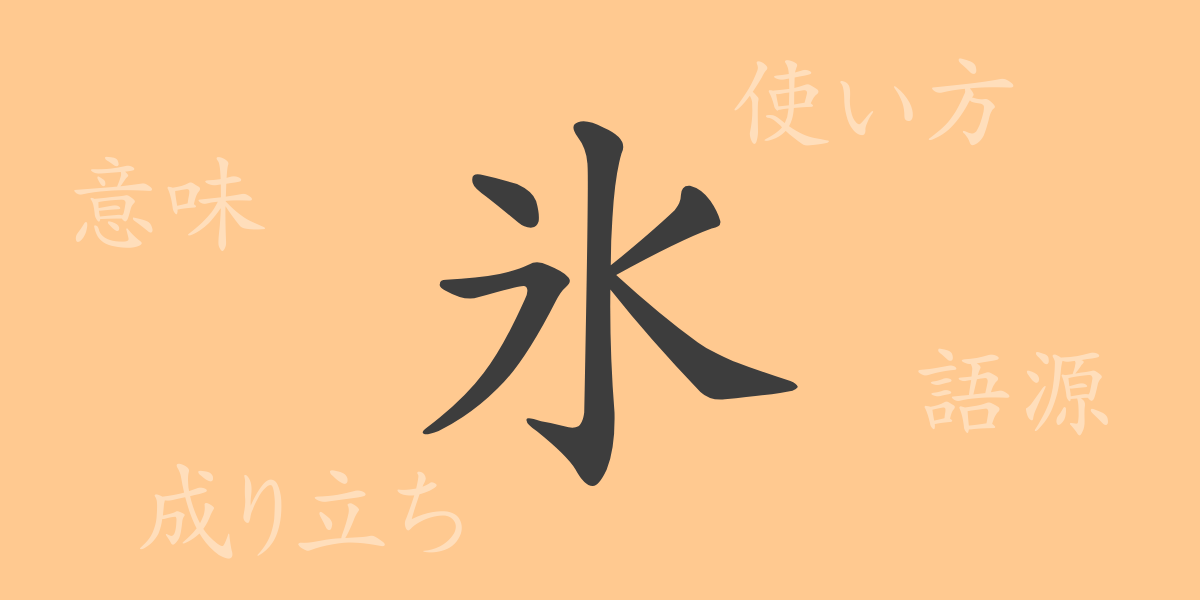The “ice” that is indispensable to the ever-changing landscapes of Japan’s four seasons. Ice, which brings coolness on hot summer days, is deeply rooted in our lives. However, opportunities to learn in detail about how ice is formed and how it influences our language and culture are surprisingly rare. In this article, we will unravel everything about ice, from its origin and meaning to its usage and expressions involving ice.
The Origin (語源) of Ice
The origin of the word “氷 (こおり, koori)” is ancient, and in Japanese, it was originally read as “ひ (hi).” This word is derived from the Chinese character “冰 (ひょう, hyou),” which also means ice. The character 冰 can be found in classical Chinese literature, representing the solidification of water due to cold. In Japan, this character has been used in ancient texts such as the Kojiki and the Manyoshu, indicating that it has walked alongside Japanese history.
Meaning and Usage of Ice
The character “氷 (こおり, koori)” means frozen water, that is, water in a solid state. It is most commonly used to cool food and beverages, but it is also used as a coolant in medical settings and as ice packs in sports. In everyday life, the term “氷点下 (ひょうてんか, hyoutenka)” is familiar, indicating temperatures below freezing (0 degrees Celsius).
Reading, Stroke Count, and Radical of 氷 (こおり, koori)
The character 氷 (こおり, koori) is one of the basic characters frequently used in daily life.
- Reading: On’yomi (音読み) is “ひょう (hyou),” Kun’yomi (訓読み) is “こおり (koori)”
- Stroke count: 5 strokes in total
- Radical: The radical is 氵 (さんずい, sanzui), classified under characters related to water
Idioms, Phrases, and Proverbs Using Ice
Expressions involving ice are abundant in the Japanese language. The idiom “氷山の一角 (ひょうざんのいっかく, hyouzan no ikkaku)” indicates that visible problems or phenomena are just a small part of a larger, hidden issue. The expression “氷解する (ひょうかいする, hyoukai suru)” describes a situation where frozen relationships or atmospheres thaw and become amicable. The proverb “氷に炭を置く (こおりにすみをおく, koori ni sumi wo oku)” is used to point out actions that are futile or ineffective.
Summary About Ice
While ice is closely related to our lives, we may rarely think deeply about its origin or meaning. However, through this article, we have been able to understand the multifaceted nature of ice and its impact on the Japanese language and culture. From cold drinks in summer to being part of winter landscapes, and creating various expressions in language, ice is an indispensable part of our lives, and we have had the opportunity to rediscover its charm.

























